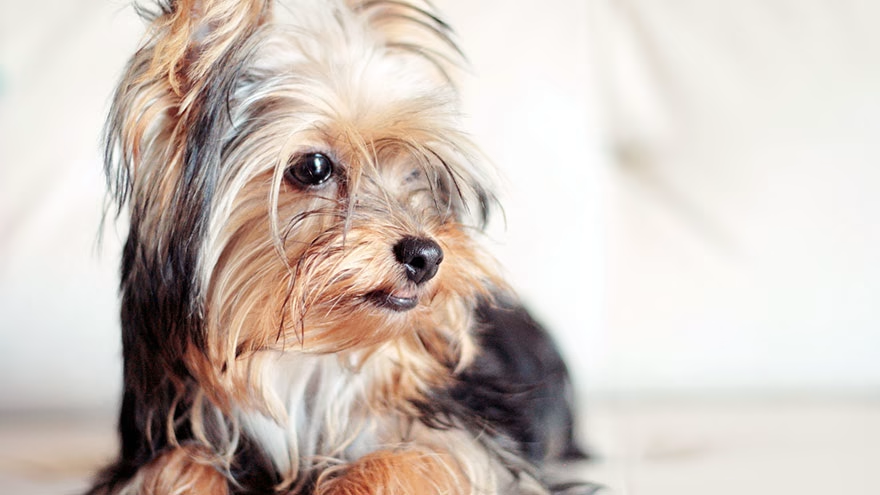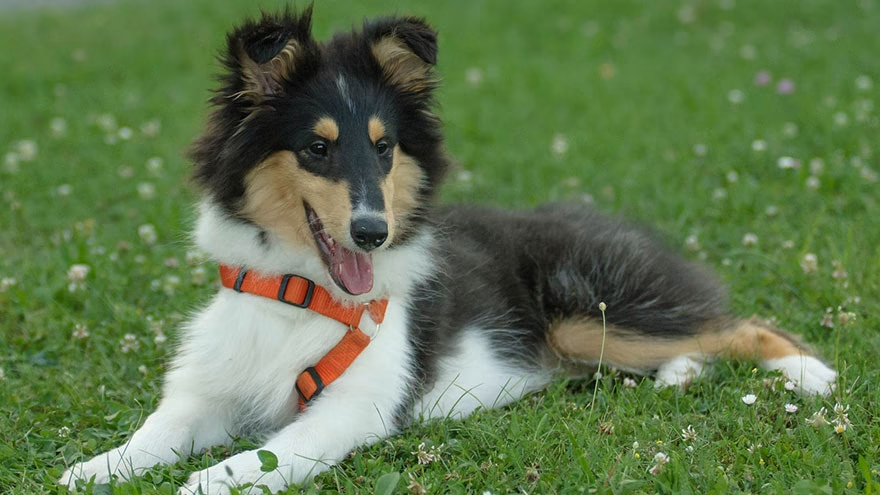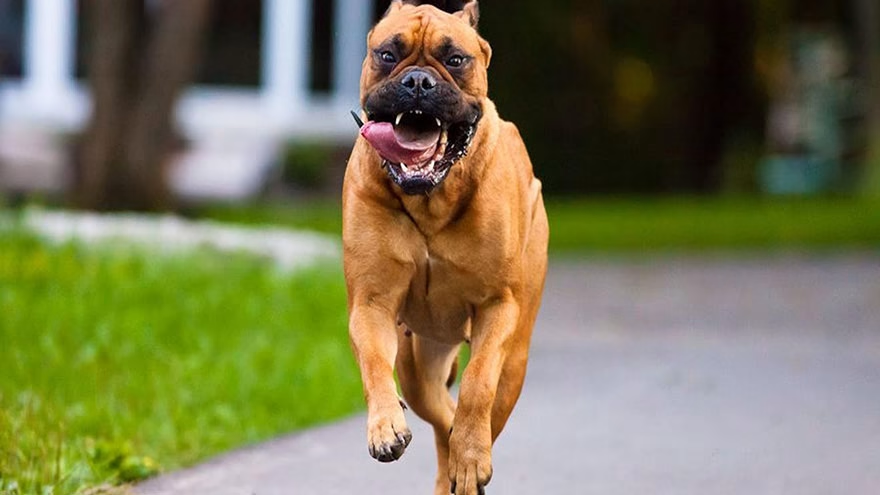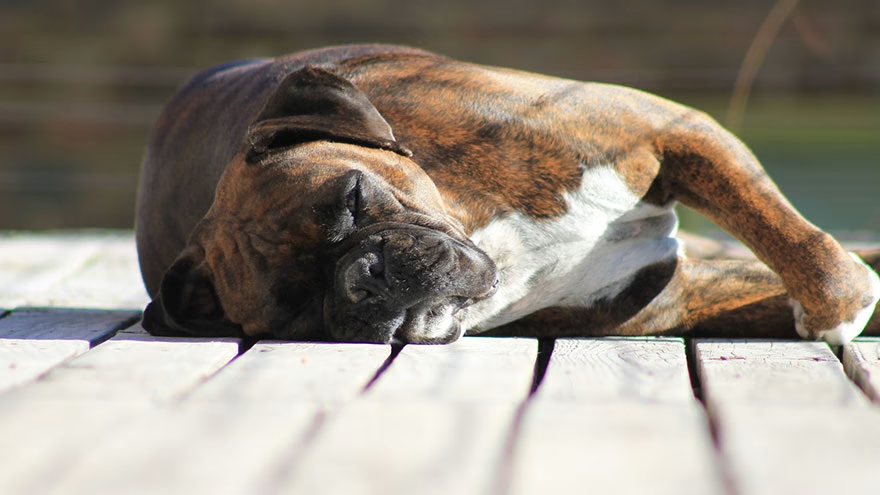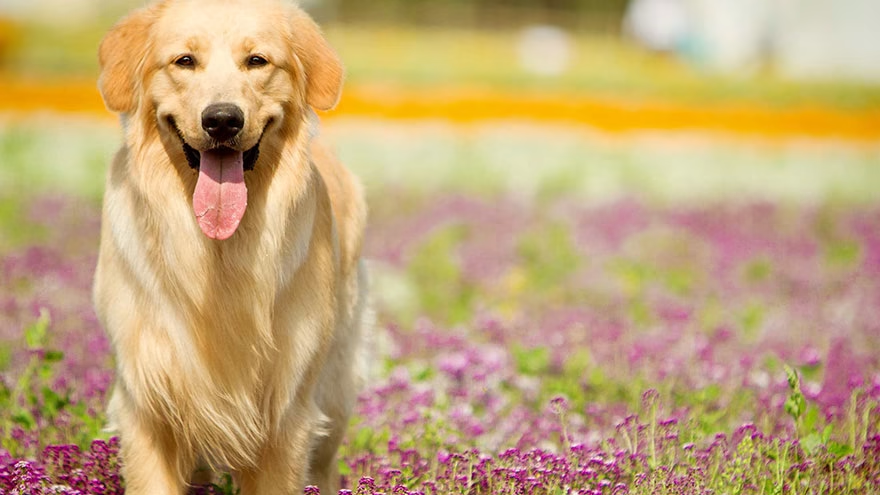The hair on the head is abundant and must often be kept trimmed or tied back to keep it out of the way when the dog is eating. The Yorkshire Terrier can be a stubborn dog and will need a lot of attention. Yorkies are energetic and can be very clever.
The Yorkshire Terrier can be a challenge when it comes to housebreaking. However, with patience and the right kind of attention, this toy breed can be a good companion.
Yorkies are generally loyal to the owner/master and can be an excellent watchdog. Dogs of this breed can be good for apartment living as they will do well as an indoor dog.
Yorkshire Terrier Temperament
Because this is a terrier, Yorkies can sometimes be a bit aggressive to strangers and to small animals. It is a courageous dog beyond its small size, seeking and exploring when it gets the chance.Yorkshire Terriers can be very loyal and loving to the owner, but may show suspicion around strangers. Small children can present a problem for the Yorkie, as the dog can be excitable and can get irritated when pushed too far.
This breed can be very affectionate and may become attached to an individual, especially if a reputable breeder takes the time to socialize his young dogs, raises the puppy. This leads the Yorkie to trust people more readily and fit into a new home more quickly. Training can be a problem with individual dogs because the Yorkie may be a bit stubborn but training in general is not terribly difficult.
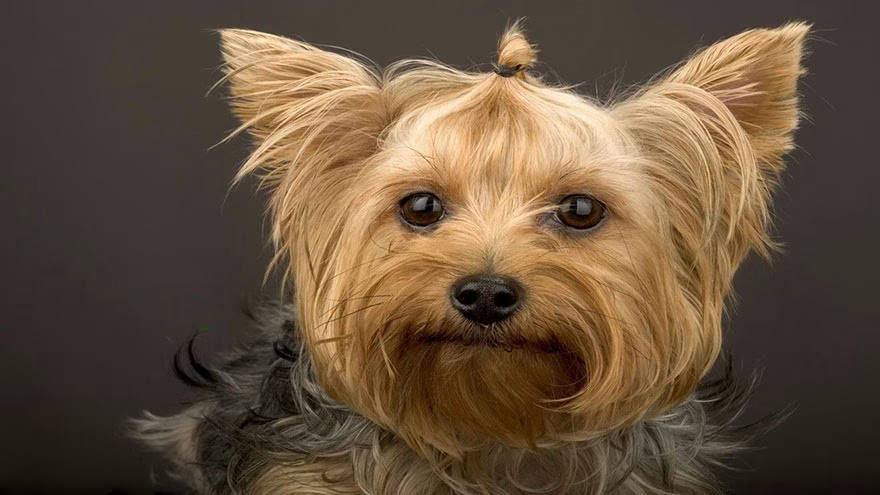
Yorkshire Terrier Size And Color
Yorkshire Terriers grow to only six or seven inches in height and weigh up to seven pounds. The American Kennel Club standard disqualifies a Yorkshire Terrier that exceeds seven pounds. The long, silky coat is black and tan on the puppy.However, the darker parts of the coat turn a beautiful steel blue as the dog grows. Color of hair on the body is very important in show dogs, as is the richness of the tan color on the head and legs. The darker hair should not be silver-tinged, bronze, or black in the adult.
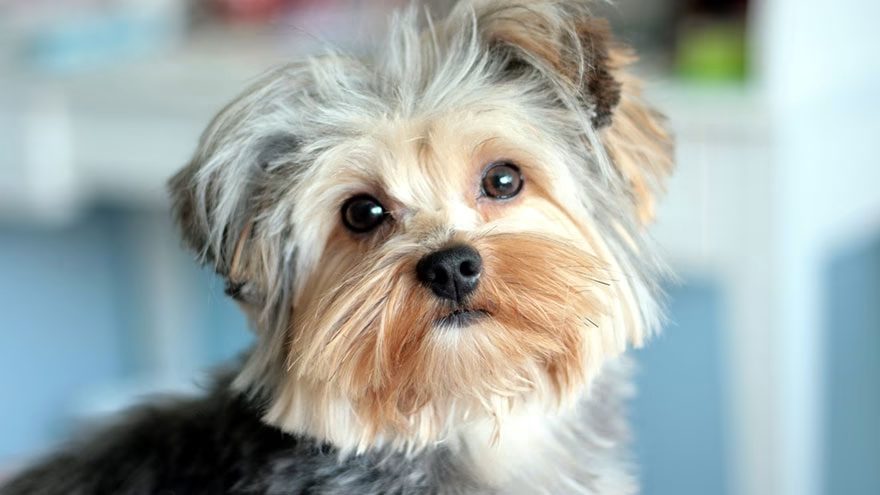
Yorkshire Terrier Feeding And Grooming Requirements
Grooming may be one of the most important parts of caring for a Yorkshire Terrier, because of the long, silky coat. In fact, some experienced Yorkie owners have started businesses offering products specifically for showing this beautiful breed.Checking for snarls and matting in the long coat is a good first step in Yorkie grooming. Some professional dog grooms recommend a “slicker” brush but urge care in using this type of brush because it can irritate the skin. Special attention should be paid to trimming and cleaning the Yorkie’s ears. An occasional shampoo and thorough rinsing are absolutely, critical.
Some Yorkshire Terrier breeders say there is no commercial dog food that is just right for the Yorkie. Some recommend fresh foods similar to what the owner buys at the store for the family.
Others say that talking with the breeder when you get your puppy is the best time to set up a diet, in writing, that will keep your Yorkie in good health. There are foods that are created specifically for dogs with long, silky coats. These can be a bit more expensive than the usual commercial food, however.
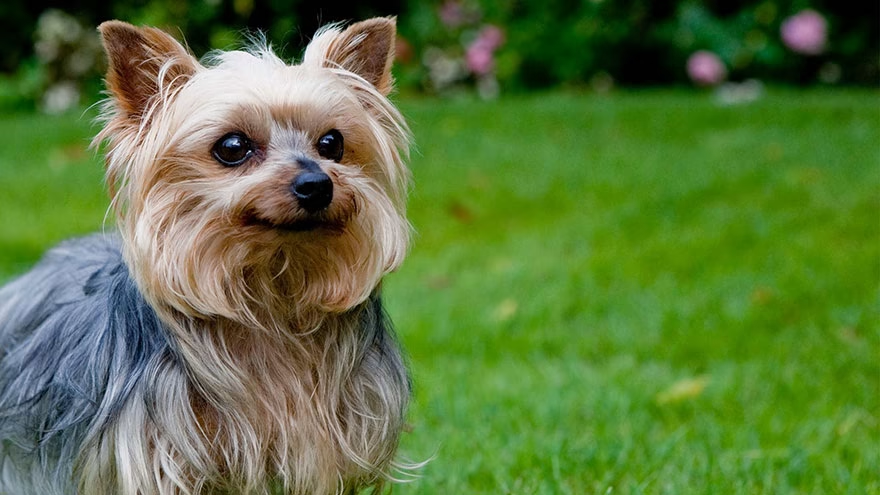
Yorkshire Terrier Exercise Needs
The Yorkshire Terrier will not need a great deal of exercise. An occasional walk on the leash or a few minutes playing in a fenced yard will do just fine. Yorkies do well as indoor dogs and are great for apartment living because of their small size.Yorkies can live 15 years or more with proper care. The dog should never be left outside alone for long amounts of time. This breed will show a desire to explore and even dig a bit, because the Yorkie is a terrier!
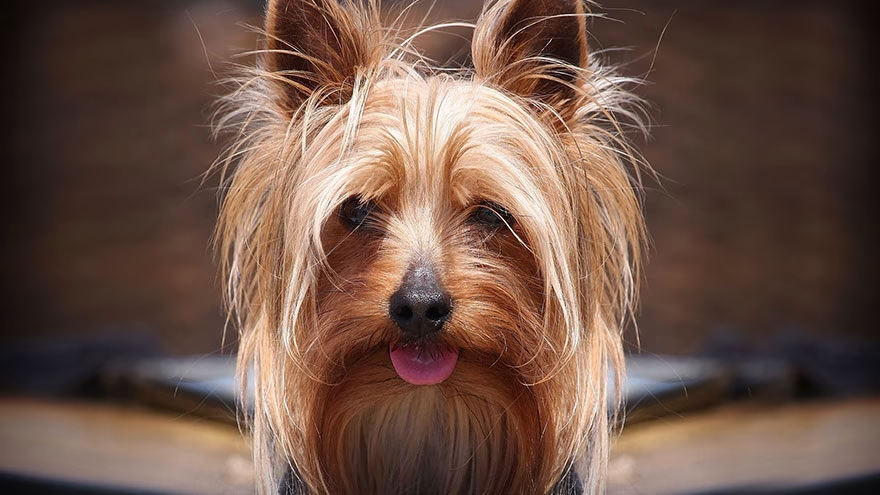
Read More About Yorkshire Terrier
- Yorkshire Terrier : 10 Most Common Questions
- Yorkshire Terrier Training Guide
- Yorkshire Terrier Health Guide
- Owning A Yorkshire Terrier : Breeder Recommendations
Save for later
Found this helpful?
Pin this article to your Pinterest board and come back to it whenever you need a reminder.
Save to Pinterest